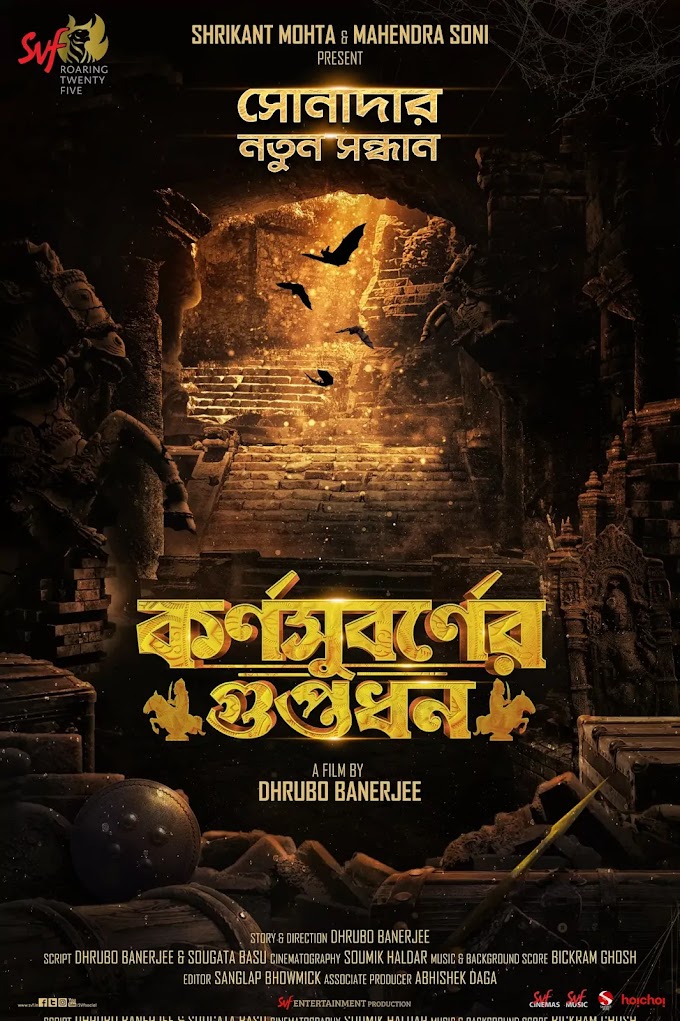Rajkahini (2015) Bengali Movie Review: Story and Performances
Released in theatres on 16th October 2015, the Bengali film Rajkahini directed by Srijit Mukherji delves deep into the tumultuous era of the partition of Bengal in 1947. The film paints a poignant picture of the lives of a group of women residing in a brothel located on the border between India and East Pakistan (now Bangladesh). With a runtime of approximately 900 words, let's explore the compelling narrative and thematic richness of "Rajkahini."
Set against the backdrop of the partition, "Rajkahini" showcases the lives of eleven women from different religious and cultural backgrounds who find themselves trapped within the confines of a brothel." As the political turmoil of partition unfolds, the women must navigate the challenges of identity, survival, and societal prejudice. Led by Begum Jaan, portrayed by Rituparna Sengupta, the women form a close-knit community, fighting against both external forces and their own internal conflicts.
One of the film's notable strengths lies in its well-crafted characters and their performances. Rituparna Sengupta delivers a powerful portrayal of Begum Jaan, the formidable and fearless madam of the brothel. Her performance captures the complexities of a strong yet vulnerable woman who becomes the pillar of strength for the women under her care. The ensemble cast, including Jisshu Sengupta, Saswata Chatterjee, and Rudranil Ghosh, among others, breathe life into their respective characters, each representing a unique struggle and resilience amidst the chaos of partition.
The film adeptly weaves together elements of history, politics, and human emotions, offering a nuanced exploration of the effects of partition on individuals and communities. Through the stories of the women in the brothel, "Rajkahini" highlights the personal sacrifices, trauma, and shattered dreams caused by the violent division of a nation. The film serves as a poignant reminder of the human cost of political decisions, shedding light on the often-overlooked stories of marginalized women during times of social upheaval.
The strong feminist undertones of "Rajkahini" are another standout aspect of the film. It portrays women as multi-dimensional characters, highlighting their strength, resilience, and determination in the face of adversity. The women are not mere victims; they are fighters who challenge societal norms and stand up against the oppression imposed upon them. The film celebrates the indomitable spirit of women and their ability to forge their own paths, even in the most challenging circumstances.
Srijit Mukherji's direction and storytelling skills shine in "Rajkahini." The film balances the emotional depth of its characters with moments of tension, dramatic confrontations, and subtle symbolism. The dialogues, penned by the director himself, carry a poetic resonance, evoking strong emotions and adding layers of meaning to the narrative. The cinematography by Soumik Haldar skillfully captures the rawness and beauty of the brothel's setting, reflecting the stark realities of the partition era.
Additionally, the film's music, composed by Indraadip Dasgupta, adds to the overall impact of "Rajkahini." The soulful melodies and powerful lyrics perfectly complement the narrative, enhancing the emotional depth and heightening the film's impact on the audience.
Beyond its historical and social relevance, "Rajkahini" resonates on a universal level. It explores themes of identity, unity, and the human spirit's capacity to endure even in the face of overwhelming adversity. The film challenges stereotypes, breaks societal barriers, and urges viewers to reflect on the power of empathy, compassion, and the human capacity to find strength and unity in the face of adversity.
The performances in "Rajkahini" are exceptional, bringing depth and authenticity to the characters. Lily Chakravarty shines as Kamala, affectionately known as Thamma, portrays a motherly figure who provides solace and wisdom to women. Sudipta Chakraborty delivers a memorable performance as Juthika, aka Juhi, a young woman trapped by circumstances but determined to assert her identity. Jaya Ahsan brings a captivating presence to the screen as Rubina, a woman grappling with the complexities of her past and her loyalty. Saayoni Ghosh, Sohini Sarkar, Parno Mittra, Priyanka Sarkar, Ridhima Ghosh, Ena Saha, Ditipriya Roy, and the rest of the ensemble cast portray their characters with nuance and emotional depth, each leaving a lasting impression on the audience.
Notable performances by Saswata Chatterjee as Mr. Profullo Mohan Sen, Kaushik Sen as Mr. Muhammad Ilias, and Abir Chatterjee as Master further elevate the film with their nuanced portrayals. Jisshu Sengupta's special appearance as Kabir adds an emotional layer to the narrative, emphasizing the impact of partition on personal relationships.
In conclusion, "Rajkahini" is a powerful and poignant Bengali film that captivates audiences with its compelling narrative and exceptional performances. Srijit Mukherji's direction, coupled with the strong performances of the entire ensemble cast, brings the stories of the women to life. Through its exploration of the partition era, the film highlights the resilience, strength, and unity that can emerge from the most challenging of circumstances. The film serves as a reminder of the human capacity to endure, the importance of empathy and compassion, and the indomitable spirit that can overcome even the darkest of times.





0 Comments